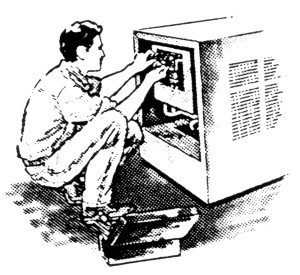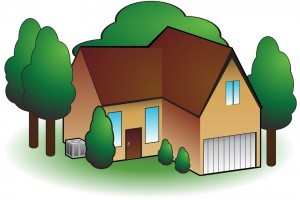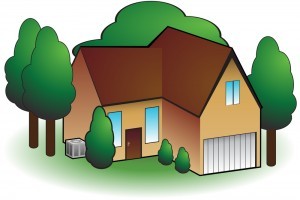Education makes sense. With spring in the air, people begin to suffer from allergies. Thanks to the internet, there is a plethora of misinformation and false claims about products. Bayonet is proud to offer Lennox’s Healthy Climate line of air cleaners. NONE of the Healthy Climate Products produce ANY OZONE as a byproduct. Most electronic air cleaners emit some ozone. Mention this blog to take $50 off the installation of an OZONE FREE whole home filter when installed before 1 May 2013.
If you’re considering an indoor air quality solution, read on to learn more about Ozone and why it shouldn’t be your option!
From http://www.epa.gov/iaq/pubs/ozonegen.html:
Ozone generators that are sold as air cleaners intentionally produce the gas ozone. Often the vendors of ozone generators make statements and distribute material that lead the public to believe that these devices are always safe and effective in controlling indoor air pollution. For almost a century, health professionals have refuted these claims (Sawyer, et. al 1913; Salls, 1927; Boeniger, 1995; American Lung Association, 1997; Al-Ahmady, 1997). The purpose of this document is to provide accurate information regarding the use of ozone-generating devices in indoor occupied spaces. This information is based on the most credible scientific evidence currently available.
Some vendors suggest that these devices have been approved by the federal government for use in occupied spaces. To the contrary, NO agency of the federal government has approved these devices for use in occupied spaces. Because of these claims, and because ozone can cause health problems at high concentrations, several federal government agencies have worked in consultation with the U.S. Environmental Protection Agency to produce this public information document.
What is Ozone?
Ozone is a molecule composed of three atoms of oxygen. Two atoms of oxygen form the basic oxygen molecule–the oxygen we breathe that is essential to life. The third oxygen atom can detach from the ozone molecule, and re-attach to molecules of other substances, thereby altering their chemical composition. It is this ability to react with other substances that forms the basis of manufacturers’ claims.
How is Ozone Harmful?
The same chemical properties that allow high concentrations of ozone to react with organic material outside the body give it the ability to react with similar organic material that makes up the body, and potentially cause harmful health consequences. When inhaled, ozone can damage the lungs. Relatively low amounts can cause chest pain, coughing, shortness of breath, and, throat irritation. Ozone may also worsen chronic respiratory diseases such as asthma and compromise the ability of the body to fight respiratory infections. People vary widely in their susceptibility to ozone. Healthy people, as well as those with respiratory difficulty, can experience breathing problems when exposed to ozone. Exercise during exposure to ozone causes a greater amount of ozone to be inhaled, and increases the risk of harmful respiratory effects. Recovery from the harmful effects can occur following short-term exposure to low levels of ozone, but health effects may become more damaging and recovery less certain at higher levels or from longer exposures (US EPA, 1996a, 1996b).
Is There Such a Thing as “Good Ozone” and “Bad Ozone”?
The phrase “good up high – bad nearby” has been used by the U.S. Environmental Protection Agency (EPA) to make the distinction between ozone in the upper and lower atmosphere. Ozone in the upper atmosphere–referred to as “stratospheric ozone”–helps filter out damaging ultraviolet radiation from the sun. Though ozone in the stratosphere is protective, ozone in the atmosphere – which is the air we breathe – can be harmful to the respiratory system. Harmful levels of ozone can be produced by the interaction of sunlight with certain chemicals emitted to the environment (e.g., automobile emissions and chemical emissions of industrial plants). These harmful concentrations of ozone in the atmosphere are often accompanied by high concentrations of other pollutants, including nitrogen dioxide, fine particles, and hydrocarbons. Whether pure or mixed with other chemicals, ozone can be harmful to health.
Are Ozone Generators Effective in Controlling Indoor Air Pollution?
Available scientific evidence shows that at concentrations that do not exceed public health standards, ozone has little potential to remove indoor air contaminants.
There is evidence to show that at concentrations that do not exceed public health standards, ozone is not effective at removing many odor-causing chemicals.
If used at concentrations that do not exceed public health standards, ozone applied to indoor air does not effectively remove viruses, bacteria, mold, or other biological pollutants.
If I Follow Manufacturers’ Directions, Can I be Harmed?
Results of some controlled studies show that concentrations of ozone considerably higher than these standards are possible even when a user follows the manufacturer’s operating instructions.
There are many brands and models of ozone generators on the market. They vary in the amount of ozone they can produce. In many circumstances, the use of an ozone generator may not result in ozone concentrations that exceed public health standards. But many factors affect the indoor concentration of ozone so that under some conditions ozone concentrations may exceed public health standards.
Ozone can adversely affect indoor plants, and damage materials such as rubber, electrical wire coatings, and fabrics and art work containing susceptible dyes and pigments (U.S. EPA, 1996a).
What Other Methods Can Be Used to Control Indoor Air Pollution?
The three most common approaches to reducing indoor air pollution, in order of effectiveness, are:
- Source Control: Eliminate or control the sources of pollution;
- Ventilation: Dilute and exhaust pollutants through outdoor air ventilation, and
- Air Cleaning: Remove pollutants through proven air cleaning methods.
Conclusions
Whether in its pure form or mixed with other chemicals, ozone can be harmful to health.
When inhaled, ozone can damage the lungs. Relatively low amounts of ozone can cause chest pain, coughing, shortness of breath and, throat irritation. It may also worsen chronic respiratory diseases such as asthma as well as compromise the ability of the body to fight respiratory infections.
Some studies show that ozone concentrations produced by ozone generators can exceed health standards even when one follows manufacturer’s instructions.
Many factors affect ozone concentrations including the amount of ozone produced by the machine(s), the size of the indoor space, the amount of material in the room with which ozone reacts, the outdoor ozone concentration, and the amount of ventilation. These factors make it difficult to control the ozone concentration in all circumstances.
Available scientific evidence shows that, at concentrations that do not exceed public health standards, ozone is generally ineffective in controlling indoor air pollution.
The concentration of ozone would have to greatly exceed health standards to be effective in removing most indoor air contaminants. In the process of reacting with chemicals indoors, ozone can produce other chemicals that themselves can be irritating and corrosive.
Resources:
See www.epa.gov/iaq/pubs/ozonegen.html
See www.epa.gov/iaq/aircleaners/index.html
Publications
- The Inside Story: A Guide to Indoor Air, EPA Document Number EPA 402-K-93-007. U.S. EPA, U.S. CPSC. April 1995.
- Guide to Air Cleaners in the Home This brochure replaces “Residential Air Cleaners – Indoor Air Facts No. 7, EPA 20A-4001, February 1990.”, EPA 402-F-08-004, May 2008
- Residential Air Cleaners (Second Edition) A Summary of Available Information
- Indoor Air Pollution: An Introduction for Health Professionals, EPA Document Number EPA 402-R-94-007. American Lung Association, EPA, CPSC, American Medical Association.






